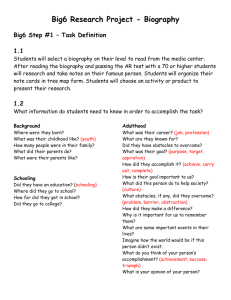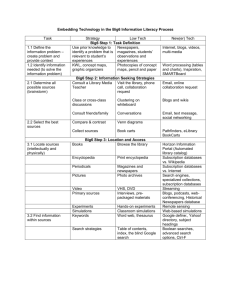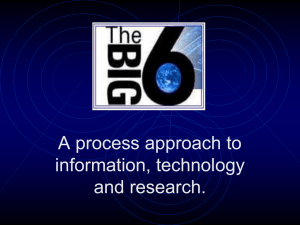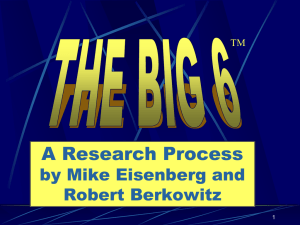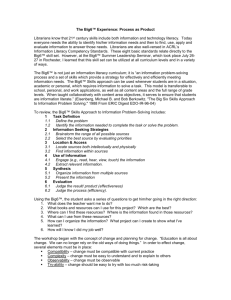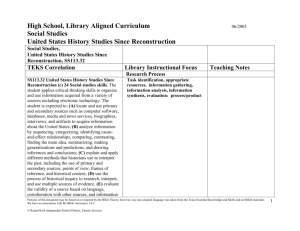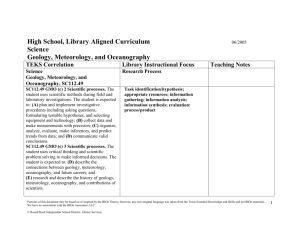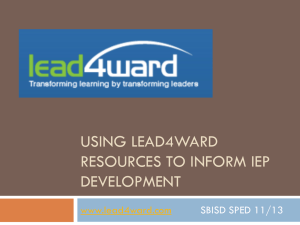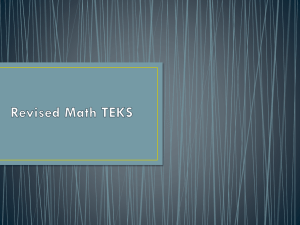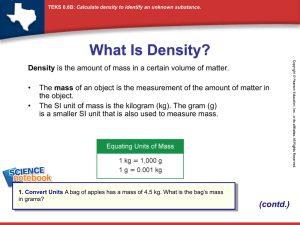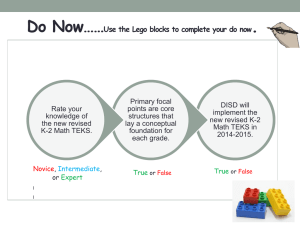Big Six Research Model - schoollibrarycollaboration
advertisement
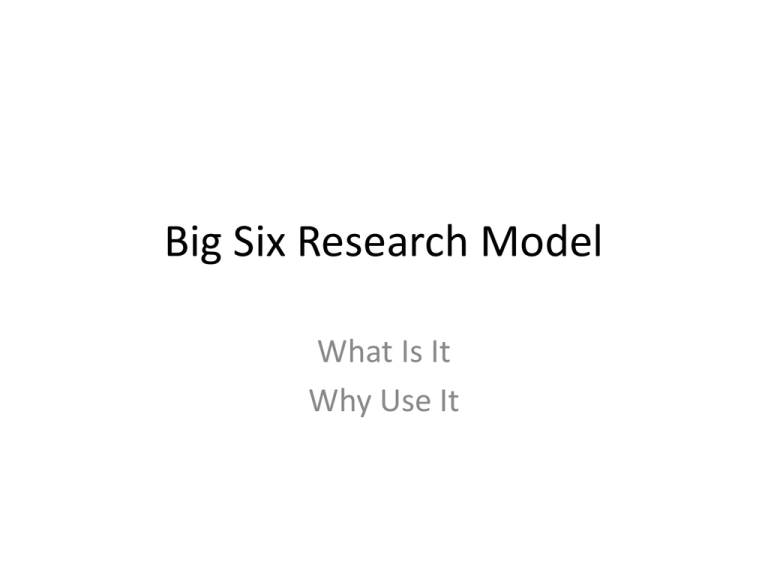
Big Six Research Model What Is It Why Use It What Is The Big 6? Grades 3 and up • • • • • • Step 1 – Task Definition Step 2 – Information Seeking Strategies Step 3 – Location and Access Step 4 – Use of Information Step 5 – Synthesis Step 6 – Evaluation (Jansen, “The Big6 Goes Primary”) Advantages Opportunity to activate and extend knowledge Student-Led Method Inquiry-based Learning Applicable for any subject (Jansen, “The Big6 Goes Primary”) Big6-TEKS Comparison Big6 Step 1 – Task Definition TEKs Key Words Research /Research Plan Define the information problem Open-Ended Research Questions Generate Research Topics Identify information needed Decide what sources Generate Research Plan (Jansen, “The Big6 Goes Primary”) Big6-TEKS Comparison Big6 Step 2 – Information Seeking Strategies Determine All Possible Sources Select the Best Sources TEKs Key Words Research /Research Plan Decide what sources of information Generate Research Plan Research/Gathering Sources (Jansen, “The Big6 Goes Primary”) Big6-TEKS Comparison Big6 Step 3- Location and Access TEKs Key Words Research/Gathering Sources Locate Sources Collect information from multiple sources Find Information within sources Skimming and Scanning Techniques Big6-TEKS Comparison Big6 Step 4 – Use of Information Students Engage Information Extract Relevant Information TEKs Key Words Research /Synthesizing Information Clarify research questions Evaluate information Big6-TEKS Comparison Big6 Step 5 – Synthesis Organize from multiple sources Present the information TEKs Key Words Research/Organizing and Presenting Present according to the purpose of research and audience Compiles Develops topic sentence Big6-TEKS Comparison Big6 Step 6 – Evaluation Students Judge the Product and Process TEKs Key Words ? What do you think? Is there a TEK? Why Use the Big6? The Big6 is able to be used at virtually any grade, subject and ability level. The process is not linear; students will learn to evaluate and refine their research as they progress. SKILLS FOR LIFE The bottom line is to raise the next generation of thinkers to be independent learners capable of turning curiosity into knowledge. Incorporating the six steps of the Big6 into the teaching curriculum at any level and in any subject will help achieve greater information literacy skills and deeper learning for your students. 21st Century Learners The Big6 also produces a framework for teaching and learning that is closely correlated to the American Association of School Librarians’ Standards for the 21st-Century Learner (2009). The Super 3 The Super3 contains the same basic elements as the Big6, but is written for younger students to understand. The Super 3 Grades K-2 Super 3 TEKs Key Words 1. Plan - (Beginning) When students get an assignment or a task, BEFORE they start doing anything, they should think: • What am I supposed to do? • What will it look like if I do a really good job? • What do I need to find out to do the job? Research/Research Plan • Open-ended question • Develop a plan • Decide sources of Information Big6 Steps: • Task Definition • Information Seeking Strategies Can Also be used with SPED classes? The Super 3 Grades K-2 Super 3 TEKs Key Words 2. Do - (Middle) In the Middle the students DO the activity. This is where they read, view, tell, make a picture, etc. Research/Gathering Sources Students determine, locate and explore sources Record Information Big6 Steps: • Location and Access • Use of Information • Synthesis The Super 3 Grades K-2 Super 3 3. Review - (End) Before finishing the product and turning it in, students should stop and think— Is this done? • Did I do what I was supposed to do? • Do I feel ok about this? • Should I do something else before I turn it in? Big6 Steps: • Evaluation TEKs Key Words Research/Organizing and Presenting Ideas Super 3 Dinosaurs You can find this really cute PowerPoint in the “free stuff” section of The Big 6 website under the presentations heading. • Flat Stanly Super Three Worksheet
